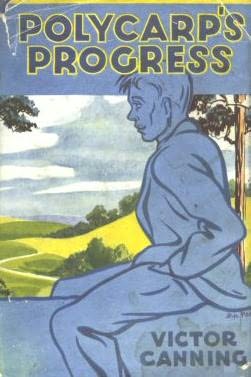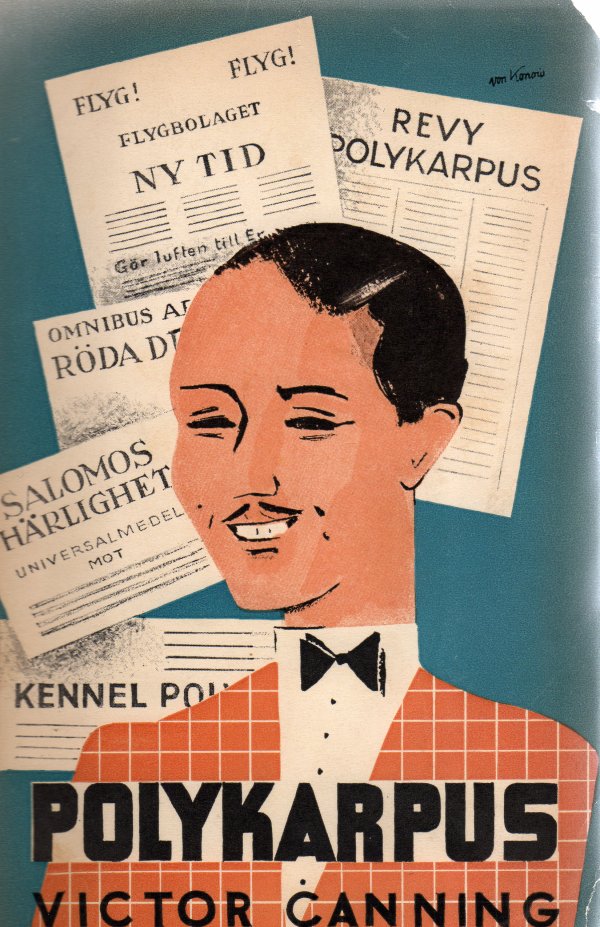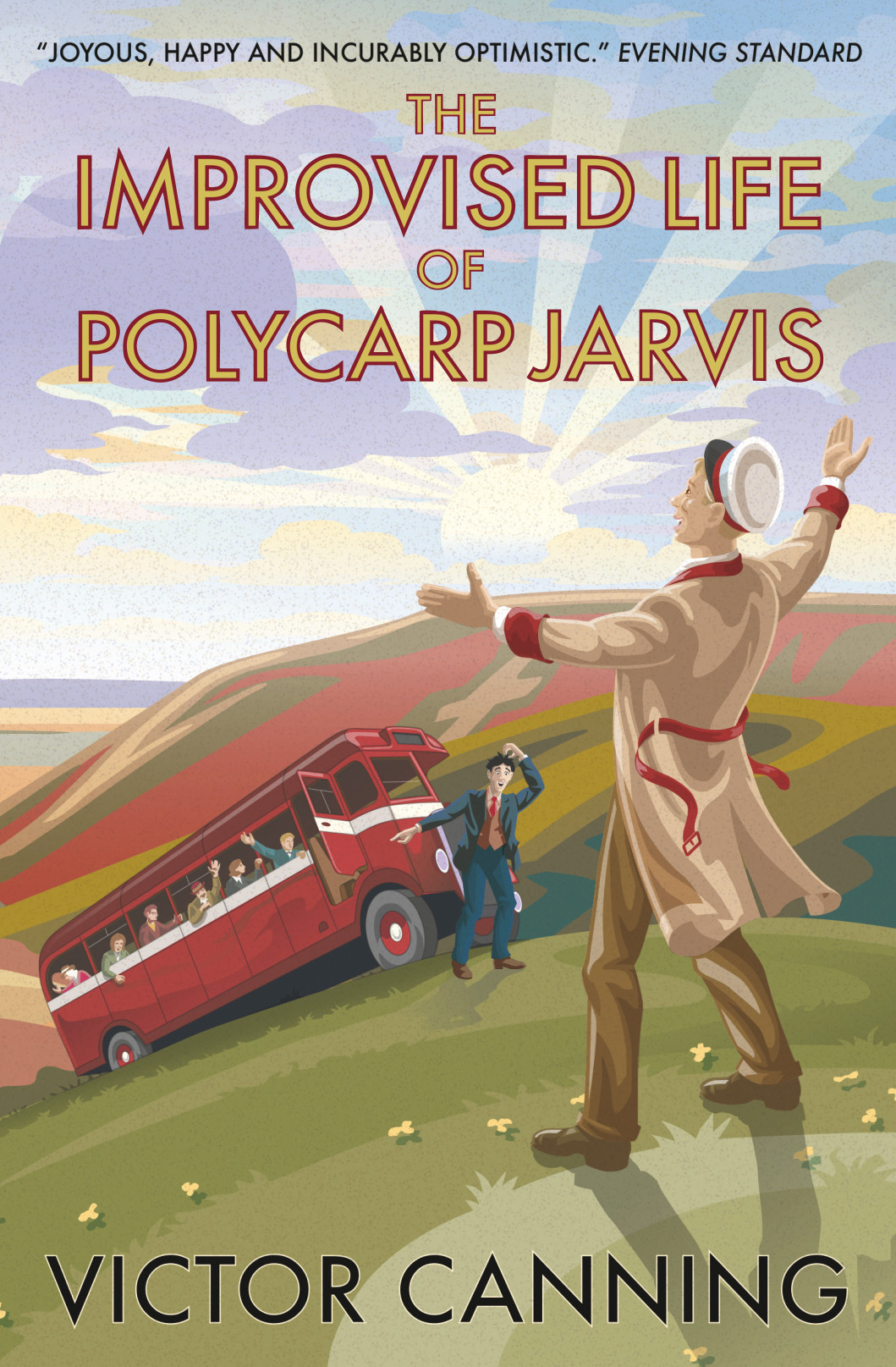
First edition 1935

Cheap edition 1937

Swedish translation 1936

 First edition 1935 |
 Cheap edition 1937 |
 Swedish translation 1936 |

Farrago Books, 2019
Audiobook narrated by John Higgins, 2022
|
||
The BookJohn Polycarp Jarvis (named Polycarp after the first bishop of Smyrna because "most Christian names are not Christian enough") rents a car on his 21st birthday and takes his boss's daughter from Bristol to Weston-super-Mare where they drink too much and he frightens her with his erratic driving. The next day he is fired from his clerical post and sets off to Oxford. He becomes a bus driver and is fired again when he abandons a coach load of passengers in the middle of the countryside because he is insulted at their failure to appreciate a beautiful sunset. Next he goes to Birmingham where he meets a melancholy aviator. They set up a flying circus and do well in March and the fictitious Brinton-on-sea, where their plane finally crashes into the sea. Now Polycarp buys a countryside dogs' home, then rescues a millionaire from embarrassment when his clothes are stolen while he is sunbathing. He becomes the millionaire's assistant, rescues a failing picture paper, funds an attempt to fly the Atlantic in which his erstwhile colleague perishes, sets up a theatre to commemorate him, and tries to win the hand of the leading lady in the initial production. |
Publishing history
This was Canning's second book, published by Hodder and Stoughton in
June 1935 with a print run of 10,500 copies selling at 7/6, with an
immediate reprint in the same month. It was reprinted in 1937 in a
cheap edition at 3/6 of 5100 copies, and a further reprint of 2500
copies in 1938, but 1700 copies were destroyed by a wartime bomb on
the Hodder warehouse. It was included in the Heinemann Uniform
Edition of the 1970s. The book's dedication is "to my mother and father". Whereas Canning had made his father the central character of his first book, this time he puts himself in and tells a story which is a mixture of what he has done (walked out of a safe job) and what he imagines himself doing (becoming a rich businessman). It is all great fun. The main comment of the reviewer in The Times Literary Supplement of 20 June 1935 was that it was "very like Arnold Bennett’s The Card.", while the Guardian reviewer on 21 June 1935 thought Polycarp a blend of The Card and The History of Mr. Polly, though saluting Canning's talent for describing scenery: "Mr. Canning has an intense feeling for the beauty of the English countryside and can present it to us with the vividness and precision that can only come of loving and intimate knowledge. His scenery is convincing even when his actors are not." After a very positive review from Howard Spring, it became the Evening Standard Book of the Month for July 1935. |